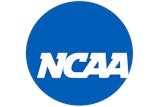A third official within the North Carolina A&T athletic department has been fired in the wake of a track prospect's death last August.
An investigation revealed that associate athletic director Merlene Aitken, along with several coaches, received an e-mail last August from chief athletics trainer Roland Lovelace asking coaches to save money by not testing prospective athletes for sickle cell trait. The e-mail was sent two days before Jospin "Andre" Milandu died at a track and field tryout. Aitken was fired Tuesday.
NCAA-mandated screening for sickle cell trait, a typically benign hereditary blood disorder that can cause health problems or death during periods of intense exercise, had taken effect in August. Cost of the test is approximately $10 per athlete.
The university fired athletics director Wheeler Brown and compliance director Darryl Hills in October. Aitken assumed Hills' responsibilities in his absence, but a public records request made earlier this month by the Greensboro News & Record confirmed that Aitken had been among 10 recipients of the August e-mail. It remains unclear why the e-mail linking Aitken to Lovelace's request hadn't surfaced earlier.
Some of the coaches on that e-mail's recipients list had also received an e-mail last June from then director of sports medicine Benicia Cleveland alerting them to the NCAA's forthcoming testing mandate. Cleveland is currently employed at Winston-Salem State. On Tuesday, North Carolina A&T suspended Lovelace without pay.
The NCAA first recognized sickle cell trait as a student-athlete health concern in the mid-1970s, after a University of Colorado football player collapsed and died during a workout. Of the 21 football players nationwide who have collapsed and died over the past decade, at least nine were carriers of the sickle cell trait, which is found in 8 percent of African-Americans and between 1 in 2,000 and 1 in 10,000 Caucasians.
In June, USA Today reported that a survey by the American Medical Society for Sports Medicine found that 21 percent of universities had decided to test for the trait by 2006. Rice University, where freshman football player Dale Lloyd II died in September 2006, was not among schools testing at the time. Lloyd's parents sued Rice and the NCAA, and a settlement reached in June 2009 spurred the August 2010 testing mandate, though student-athletes can still forgo sickle cell screening by signing a waiver.
An attorney representing the Milandu family, which rejected a $10,000 settlement offer from North Carolina A&T, made it clear to the News & Record this week that broad legal action against the university is possible, if not likely.





































